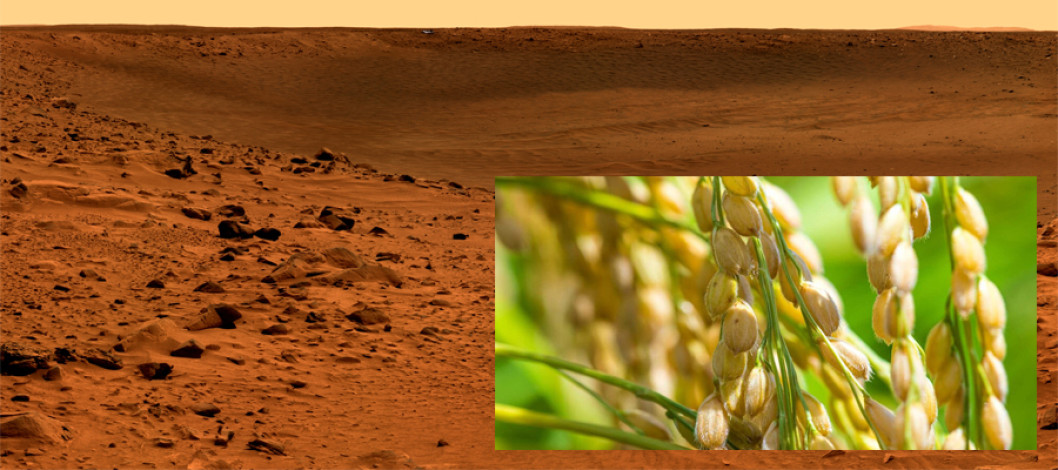
File Photo
The first colonizers of the Red Planet might be living on rice grown in the Martian soil, suggests a new study. Although Matt Damon, who played Mark Watney in the hit film "The Martian," starts growing potatoes, researchers think gene-edited rice will be a better bet.
One of the biggest challenges to growing food on Mars is the presence of perchlorate salts, which have been detected in the planet’s soil, or regolith and are generally considered to be toxic for plants. Peter James Gann, a doctoral student in cell and molecular biology, said that the project began when he met Dr. Abhilash Ramachandran for coffee in the student union of the University of Arkansas.
They formed a team that began looking into the problem and experimented with different types of rice. They used 'Martian' soil, a basaltic-rich soil mined from the Mojave Desert, called the Mojave Mars Simulant, or MMS, which was developed by scientists from NASA and the Jet Propulsion Laboratory.
They grew one wild-type and two gene-edited lines of rice with genetic mutations that better enable them to respond to stress, such as drought, sugar starvation, or salinity. These varieties were grown in the MMS, as well as a regular potted mix and a hybrid of the two.
While plants were able to grow in the Martian simulant, they were not as developed as those grown in the potting soil and hybrid mix. Replacing just a quarter of the Martian simulant with potting soil resulted in improved development.
The team also experimented with the amount of perchlorate in the soil, finding that 3 grams per kilo were the threshold beyond which nothing would grow, while mutant strains could still root in 1 gram per kilo. Their findings, presented at the 54th Lunar and Planetary Science Conference, suggest that there might be a way forward for different genetically modified rice to be grown in Martian soil. And even if the idea never reached the red planet, Dr. Ramachandran said he had met with Australian scientists looking to find ways to overcome high salinity in their soil.
He said: “We could use Earth as a terrestrial analog before the seeds ever get sent to Mars.”
Talking of their first meeting, Mr Gann, a doctoral student said: “He was new here at the university, and we shared the things we were doing in our respective laboratories.
"Since he works on planetary science, and I specialize in cell and molecular biology, we decided to try out plants.”
Next, they plan to experiment with a newer Martian soil simulant called the Mars Global Simulant, as well as other rice strains that have increased tolerance for higher salt concentrations. An important part of the research will be determining to what degree perchlorate may be leeching into the plant from the soil.
Farther down the road, the researchers would like to introduce rice into a closed habitat chamber and place it in a Mars simulation chamber that replicates the temperature and atmosphere of the planet. Mr. Gann is pleased with how his initial conversation with Dr. Ramachandran has turned out.
He added: "Relevant and interesting research can emanate from talking to strangers over a cup of coffee or a glass of beer."
Source:
Online/GFMM
Comment Now